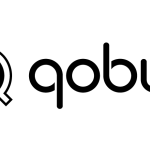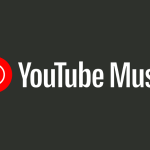The issue of artist remuneration in the music industry is not new, but it has recently gained significant attention. Are artists truly compensated for their work? Is the current streaming system fair? Artist James Blake has boldly raised these questions and proposed a potential solution. His proposal is significant in the ongoing battle for fair artist compensation in the music streaming industry. James Blake wants to change the music streaming industry.
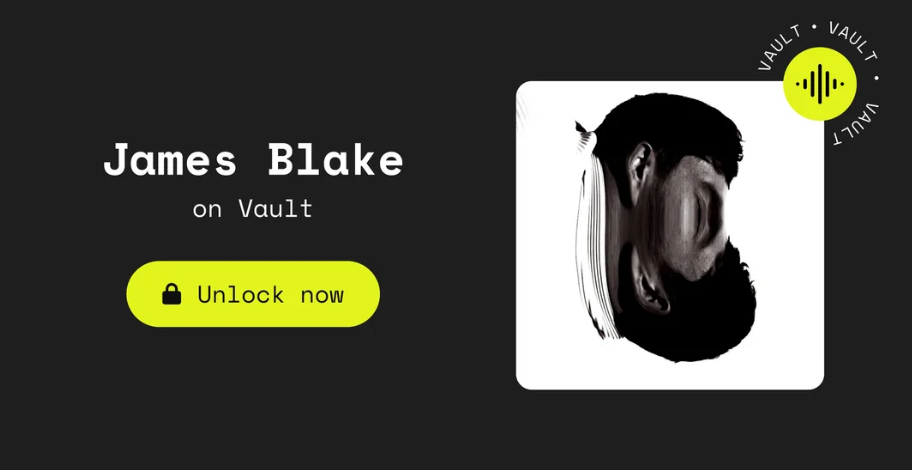
We tell you all about it, and it could have far-reaching consequences.
The context and why James Blake wants to change the music streaming industry
It all began with a statement on X (formerly Twitter). Reacting to a message from a listener, James Blake complains that he and Frank Ocean have generated almost no revenue from their song “Godspeed” despite being streamed several million times. James Blake considers this unfair and takes the opportunity to expand on the issues raised by his tweet. He believes that if listeners want quality music, someone has to pay for it. Streaming services, he says, need not redistribute more value, labels take too high a percentage of their artists’ earnings, and touring is less profitable and more expensive to set up than it used to be.
Artists’ remuneration
He also takes the opportunity to remind us how much a stream earns – “between 0.003 and 0.005 dollars” – and points to the emergence of TikTok and its impact on creation while emphasizing that this social network, increasingly popular with musicians, earns almost nothing either. According to James Blake, the music industry is working backward in a frantic race for virality. For him, listeners know little about the songs they hear, their attention spans are getting shorter by the day, and they don’t realize that the artists they listen to are struggling to make a living from their art.
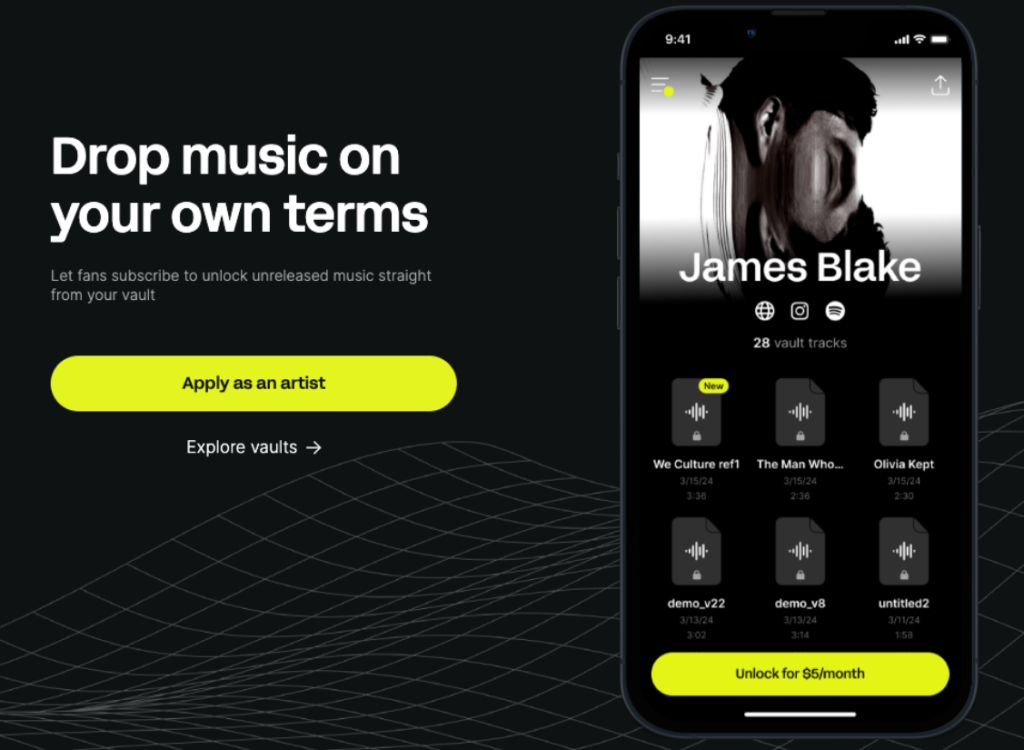
Artists are not only forced to create more to keep up with the competition and their listeners’ thirst for content but are also subject to virality constraints that distance them from pure artistic creation. He, therefore, calls for refocusing the debate, a halt to this headlong rush, and a return of power to the hands of creators.
He even further calls the music streaming model “brainwashing,” believing that everyone now thinks music has become accessible and that no one feels they have to pay anything to listen to albums anymore. The contracts signed by artists would be a scam, benefiting only the labels and music streaming services. He finishes by adding that producing consumable, synthetic music to satisfy the algorithms is more straightforward and faster. This will pave the way for more and more songs generated by Artificial Intelligence based on already existing and successful models.
James Blake wants to change the music streaming industry
At the heart of James Blake’s proposal is the notion of intermediaries. The singer believes that there are too many of them between the artist and the listener. These middlemen, who all charge a percentage, prevent artists from making enough money. How can we reduce them? How can we get back to a more privileged, almost one-to-one relationship? Artists, not necessarily only in the streaming world, are increasingly asking themselves this question. More and more of them are opting for independence. They know they won’t have the same striking power with a label or significant distribution power. Still, they also know that, with investment, they’ll make much more money than by working with a label, for example. And they’ll also have maximum control over their work. This is one of James Blake’s guiding principles.
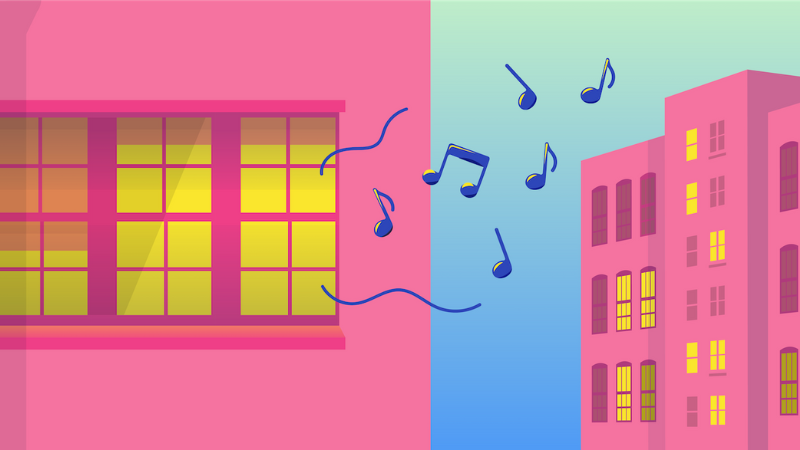
Aligned with his principles, James Blake has joined Vault, a streaming platform that prides itself on its ethical approach. The platform operates on a unique principle: subscribing to the profiles of their favorite artists and gaining unlimited access to their music and exclusive content. Vault’s slogan, ‘What if making music was enough? ‘, encapsulates its mission to provide a platform where artists can focus on their craft without the pressures of social media or label constraints. This direct artist-fan relationship, facilitated by Vault, could potentially revolutionize the music industry.
Vault
For example, a subscription to James Blake will cost $5 a month. There’s nothing to say about whether this price will remain fixed or whether it will be higher or lower depending on the artist’s popularity. Another question: who sets the price? Is it the artist or the platform, Vault? Many questions still need to be answered.
James Blake also includes a chat section so his fans can exchange views on his music. He aims for musicians who are not comfortable with social networking or image imperatives to be able to create without worrying about anything other than their music. They also free themselves from the constraints of labels, which sometimes impose release dates. Vault enables a direct relationship with no barrier to entry other than the price of a subscription.
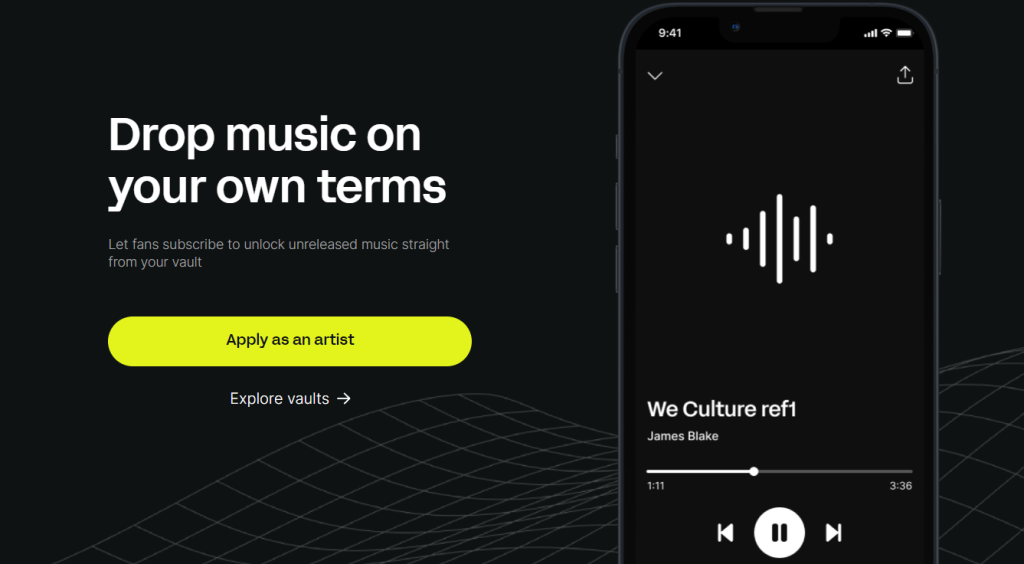
Counting on several subscriptions fixed at 5 dollars would enable them to unleash their creativity and invest more money in renting studios, hiring musicians, and so on.
Vault is still experimental, but James Blake believes it can be a game-changer, a disruptor that could revolutionize the music industry. While uncertain, this prospect is undeniably intriguing and holds the potential to reshape the landscape of music consumption and artist remuneration.
What to think about Vault?
Of course, it’s still too early to have a definitive opinion on this platform, which has just been launched. However, within the music industry and among artists, the proposal raises hopes as much as it grates. Some point out that while the model may look attractive on paper, it could prove too costly.

By subscribing to just a few artist profiles, even without supporting a dozen or so, the listener could very quickly arrive at an overall cost two or three times higher than that of their subscription to Spotify, Deezer, Apple Music, Amazon Music or any other streaming platform, where music is available without limit. It’s unlikely listeners will leave these platforms en masse. They would, therefore, have to pay, in addition to their subscription, several tens of dollars more per month to listen to other songs on Vault. This idea is good in an ideal world, but economic reality contradicts these desires.
According to James Blake, some artists are delighted that Vault can take off. All are undoubtedly waiting to see how the service evolves before joining. On paper, this could reshuffle the cards of the streaming model and force platforms to adapt. But isn’t this model, however unfairly perceived by some artists, already too entrenched to be shaken up?
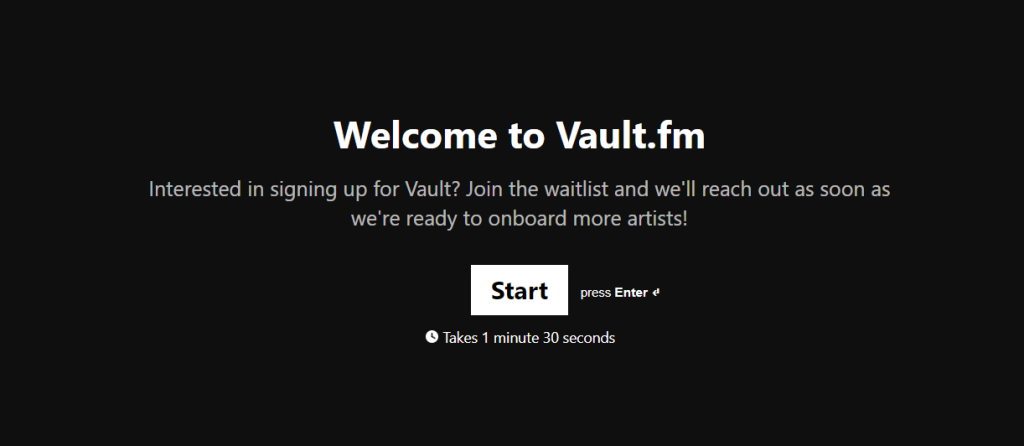
James Blake’s position raises many fascinating questions, and we will keep you updated on its progress.
What does Soundiiz have to do with the artists’ remuneration?
At Soundiiz, we pay close attention to artists’ remuneration policies. It’s a subject we’re passionate about. However, we have no impact on the potential shift from a market-centric to an artist-centric model. We can’t influence negotiations between labels and streaming platforms.
On the other hand, we will play an essential role if you wish to migrate all your data from one platform to another. How can we do that? We can do this by using our Transfer function, for example.
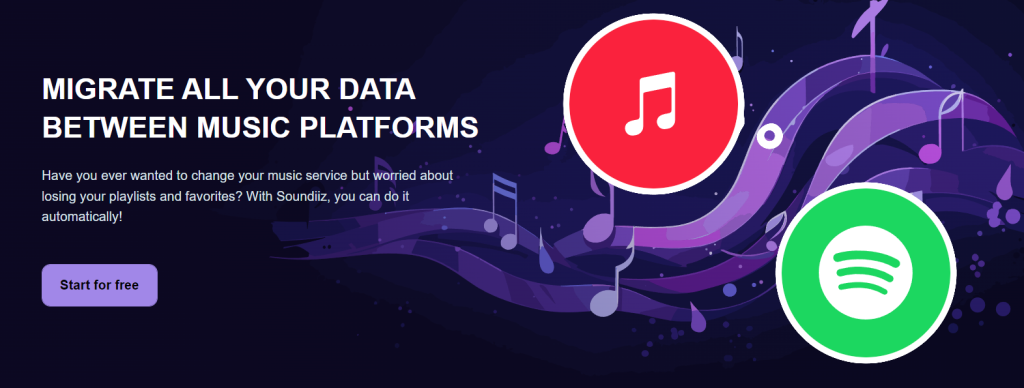
And don’t worry if you’ve already subscribed to Spotify, Apple Music, or YouTube Music. One thing that holds many people back in their decision to switch streaming platforms is the fear of losing data (playlists, favorite songs, etc.) accumulated over the years on their old streaming service.
Soundiiz allows you to avoid the embarrassing situation of starting everything from scratch. Building up a library of artists, songs, albums, or playlists… Wouldn’t that be frustrating?
With Soundiiz, you can directly find all your Spotify, Apple Music, TIDAL, YouTube Music, and other data in your new account in just a few seconds.
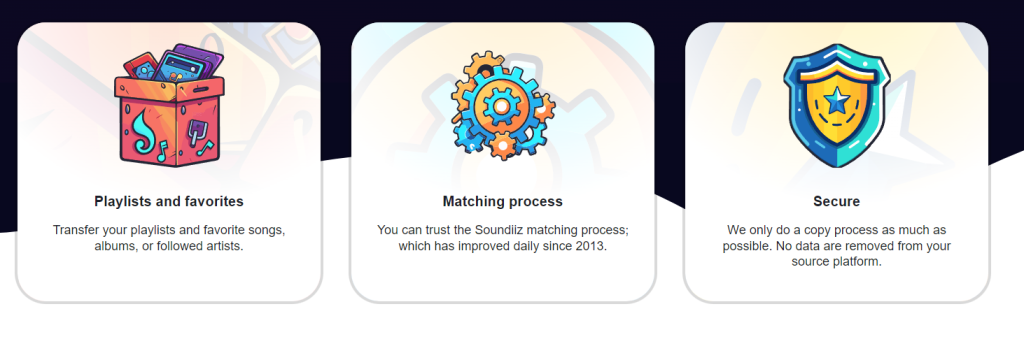
But Soundiiz doesn’t just store your data in one place: our tool is pretty magic because it allows you to edit and export these same data…directly from your Soundiiz account.
Another feature our users love is the ability to export your data in CSV format before canceling your subscription. Then, you can download the file, store it on your chosen device, and re-import it. Bonus: if you modify one or more lines of your document, these changes will be available during the re-import.
You can test our services right here!


